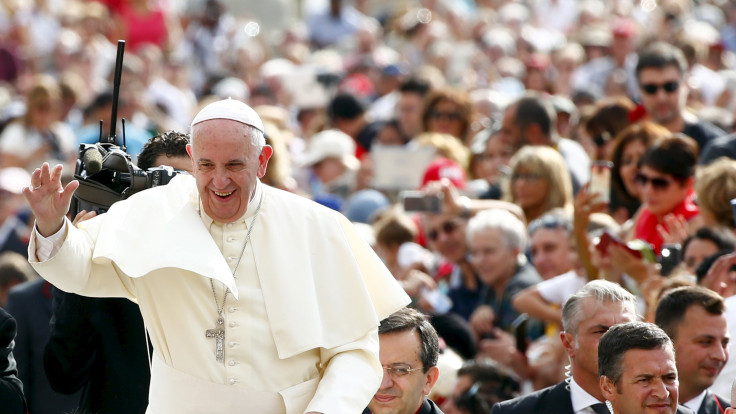Who Is Junípero Serra? Facts About The Controversial Catholic Figure Pope Francis Plans To Make A Saint

During his trip to the United States, Pope Francis plans to make Junípero Serra, an 18th century Spanish priest who helped Spain colonize California, a saint. While statues of Serra stand in both San Francisco and the U.S. capital of Washington, Serra’s canonization has been questioned by some California Native Americans who consider him the father of a colonial system that led to the systematic death of about 100,000 Native Americans.
Some Native American groups have opposed Serra’s canonization since the pope announced it in January. Others have said that Pope Francis’ decision to canonize Serra is an attempt to appeal to more Latin Americans, as Serra is a popular religious figure within the Hispanic Catholic community. Despite his popularity, Serra is known to have led the missions that kept Native Americans enslaved and ravaged by diseases brought from Europe.
Serra was born on the Spanish island of Majorca in the Mediterranean Sea in 1713. Born into a humble family, he eventually went on to become a Franciscan friar, or a person who adheres to the teachings of Saint Francis of Assisi.
After serving as a professor for many years in Spain, Serra wanted something more adventurous, so he traveled to do mission work in 1749 near Mexico City, then part of Spain’s empire. By 1769, the Roman Catholic Church had ordered him to what is now California to force the Native American population there to convert to Christianity, NPR reported.
Pope Francis will canonize a saint during his DC visit, but without controversy. http://t.co/SlaZzh6zBt pic.twitter.com/sphHk54baQ
— WUSA9 (@wusa9) September 16, 2015The Native Americans near the mission in San Diego ended up there for many reasons -- some seeking food, some because they were lured there by missionaries with gifts. Others were taken from their homes by Spanish soldiers to labor in the missions.
All of the Native Americans who came there were forced to abandon their native languages and identities in favor of Spanish ways of life and the Roman Catholic faith. Serra himself founded nine missions, and 12 more were built after his death in 1784.
“I think it's really sad to see someone that enacted genocide on an entire group of people elevated and canonized, made into a saint, when he did things that were absolutely not saintly,” Tara Houska, a Native American activist in Washington, told local TV station WUSA-9.
Native American leaders have already asked Pope Francis to renounce the Doctrine of Discovery -- the more than 500-year-old decree that allowed European explorers to enslave Native Americans. The doctrine called for explorers to declare war on all non-Christians during colonial times. It has remained in place despite past popes' condemning the poor treatment of Native Americans and excommunicating Catholics who had Native American slaves.
Pope Francis has tried to extend sympathies to Native Americans ahead of his visit. In July, he apologized to Native Americans and asked them to forgive the church for its role in the colonization of the Americas.
#JuniperoSerra Is Guilty of Genocide!
People’s Tribunal Against Serra held this past weekend in Los Angeles pic.twitter.com/qfptxc7uRL
— Think Mexican (@ThinkMexican) September 14, 2015Pope Francis plans to canonize Serra Wednesday at the Basilica of the National Shrine of the Immaculate Conception in Washington during his stop in that city. Pope Francis plans to be in the United States through Sunday.
© Copyright IBTimes 2024. All rights reserved.





















